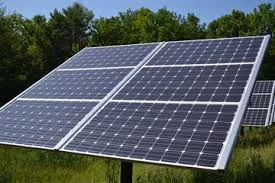Exploring Different Types of Solar Panels for Rooftop Energy Solutions
Types of Roof Solar Panels A Comprehensive Guide
As the world moves towards more sustainable energy sources, solar energy has gained immense popularity. One of the most effective ways to harness this renewable resource is through solar panels installed on rooftops. If you're considering going solar, it is essential to understand the different types of roof solar panels available, as this knowledge will help you make informed decisions that align with your energy needs and budget.
1. Monocrystalline Solar Panels
Monocrystalline solar panels are made from a single crystal structure, typically silicon. These are among the most efficient solar panels available, with efficiency ratings often exceeding 20%. Their sleek black appearance and high efficiency make them a popular choice for homeowners looking to maximize energy generation in limited space. However, they tend to be more expensive than other types of panels. Despite the higher upfront cost, their longevity and efficiency can make them a worthwhile investment.
2. Polycrystalline Solar Panels
Polycrystalline solar panels are made from multiple silicon crystals melted together. These panels are generally less expensive than their monocrystalline counterparts, largely due to the simpler manufacturing process. While they typically have a slightly lower efficiency, ranging between 15% to 20%, they tend to produce more energy in high-temperature settings, making them an excellent option for warmer climates. Homeowners looking for a cost-effective way to harness solar energy often lean towards polycrystalline panels.
3. Thin-Film Solar Panels
types of roof solar panels

Thin-film solar panels are made by depositing one or more thin layers of photovoltaic material onto a substrate. These panels are lightweight, flexible, and can be installed in various applications, including on complex roofs where traditional panels might not be suitable. While they are less efficient (usually between 10% to 12%), they perform better in low-light conditions and high temperatures. Thin-film technology is known for its adaptability, making it suitable for non-traditional roof types or for integrating into building materials.
4. Bifacial Solar Panels
Bifacial solar panels can absorb sunlight on both sides, allowing for enhanced efficiency. They utilize light reflecting off surfaces like roofs or ground to generate additional energy. While these panels are generally more expensive, they can yield higher electricity production, especially in installations that maximize ground reflection. Bifacial solar technology is gaining traction among installers looking to provide more power output from less overall installed area.
5. Building-Integrated Photovoltaics (BIPV)
BIPV refers to solar panels that are integrated into building materials, such as solar shingles or solar windows. These systems serve dual purposes—acting as both a building material and generating electricity. While their efficiency can vary, and they may be costlier compared to traditional panels, their aesthetic appeal and the potential for seamless integration into a building’s design make them an attractive option for modern architecture. Homeowners seeking to maintain their property’s aesthetics while going green often consider BIPV solutions.
Conclusion
Choosing the right type of roof solar panels involves evaluating various factors, including efficiency, aesthetic preferences, budget, and your specific energy needs. Monocrystalline panels offer high efficiency, while polycrystalline panels provide a balance between cost and performance. Thin-film panels bring versatility, and bifacial panels enhance energy generation, while BIPV options appeal to those who prioritize design. By understanding the different types of solar panels available, you can make an informed decision and step confidently into a sustainable energy future.
-
Unlocking Energy Freedom with the Off Grid Solar InverterNewsJun.06,2025
-
Unlock More Solar Power with a High-Efficiency Bifacial Solar PanelNewsJun.06,2025
-
Power Your Future with High-Efficiency Monocrystalline Solar PanelsNewsJun.06,2025
-
Next-Gen Solar Power Starts with Micro Solar InvertersNewsJun.06,2025
-
Harnessing Peak Efficiency with the On Grid Solar InverterNewsJun.06,2025
-
Discover Unmatched Efficiency with the Latest String Solar InverterNewsJun.06,2025







